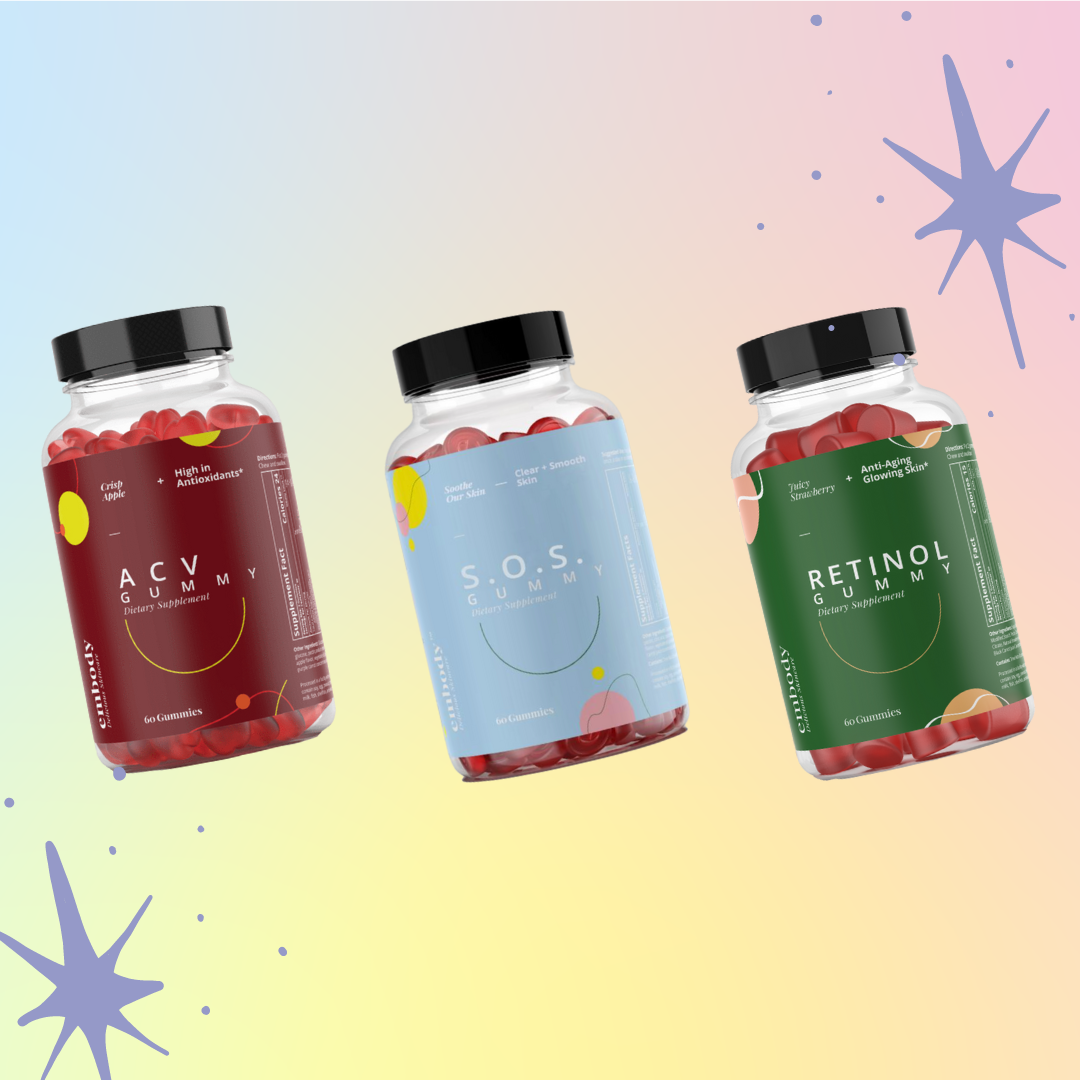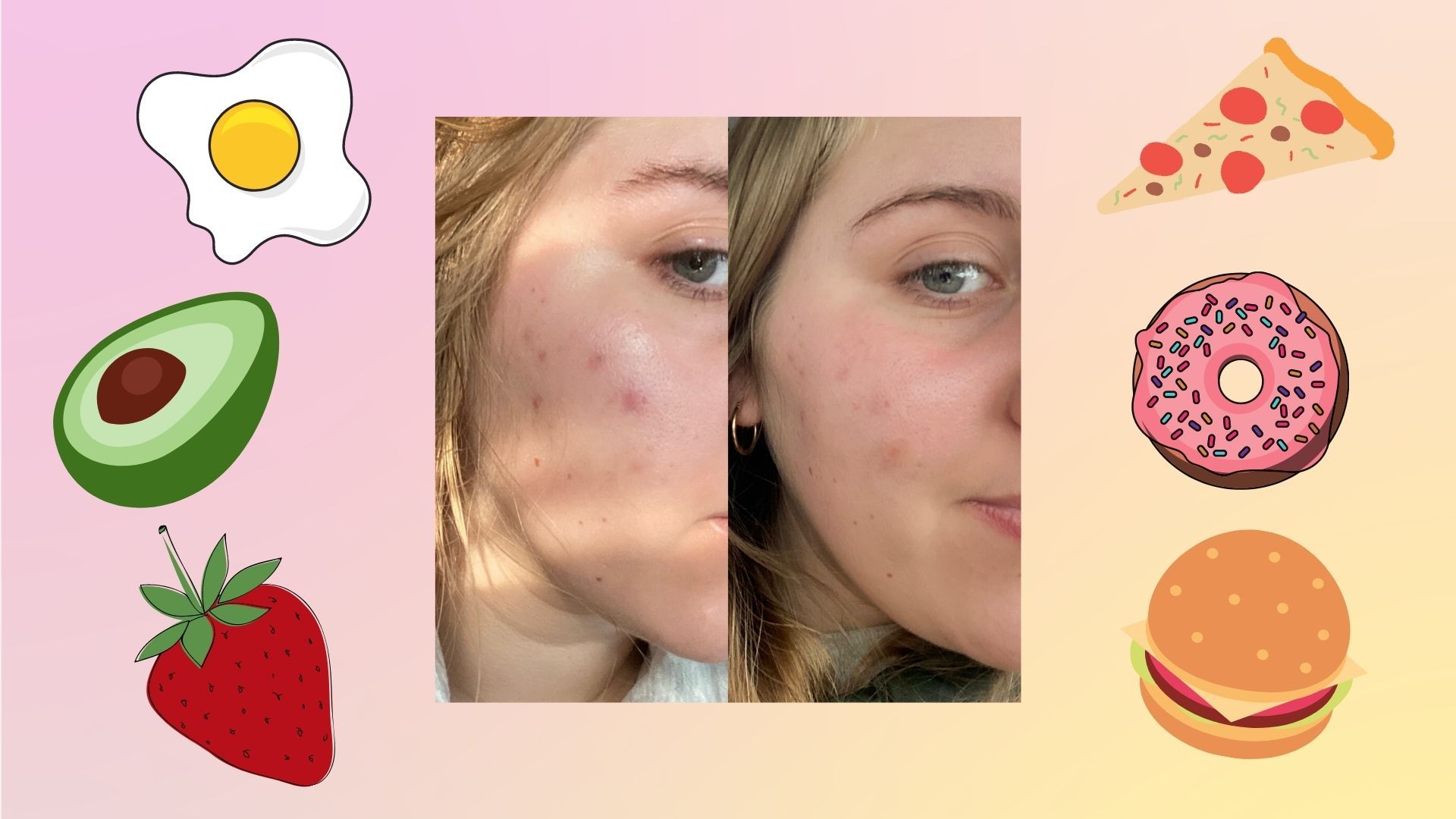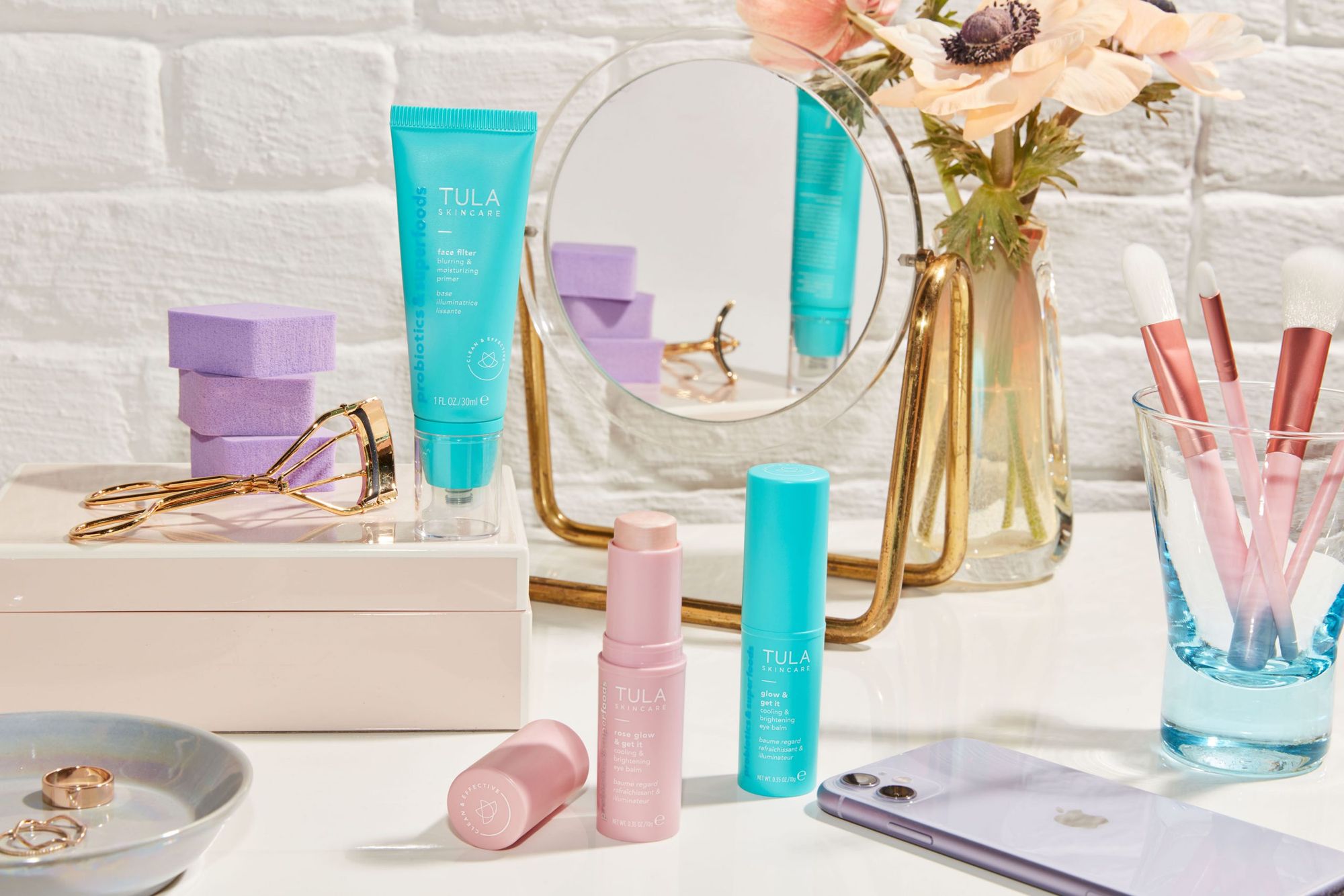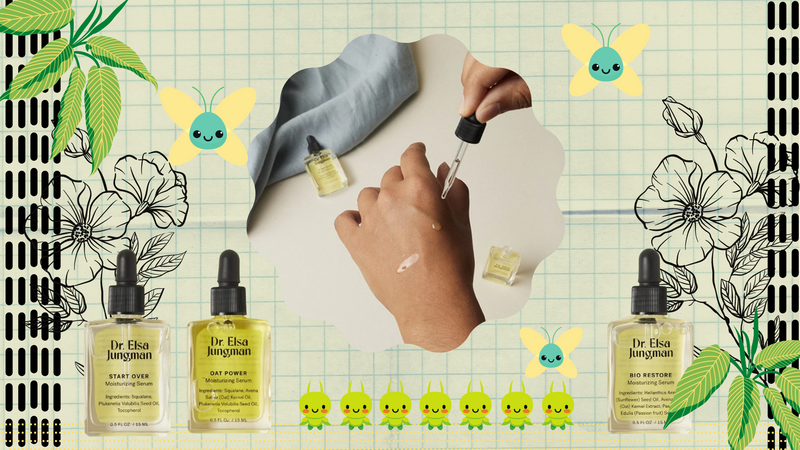You’ve probably heard of probiotics, and you likely know that there are microorganisms that live all over and throughout your body.
However, unless you’re a science nerd like myself, you probably don’t really know that much about the microbiome and its function. After doing some research, attending webinars on skin microbiology, and interviewing experts, we’re here to break down the microbiome and make those little bugs all over and within you a little less scary.
We tapped Dr. Elsa Jungman, a skin scientist with a Ph.D. in Skin Pharmacology and the founder and CEO of Dr. EJ, the first microbiome approved skin care product line in the United States, to fill you in on exactly why you should care about the organisms on your skin. Before we dive into Dr. Jungman’s tips for keeping your microbiome healthy, let’s get familiar with the basics of our skin’s microbiome.
SEE ALSO: TULA founder Dr. Roshini Raj on microbiome skincare and creating confidence in customers
What is the microbiome?
Our bodies are full of all sorts of microorganisms that live together, perform crucial functions, and keep us healthy. The community of these diverse microbes, from bacteria to fungi, is known as a microbiome. Like any living organism, the components of the microbiome are sensitive to their surroundings, and different factors like pH, temperature, moisture, and sunlight influence what organisms live where, leading to a plethora of variable microbiomes throughout our bodies.
For example, the microbiomes on our skin and within our gut are very different, which makes sense, as the skin and the gut have vastly different bodily functions. There is also a variety in the microbiomes present on the skin, as the microorganisms that are hanging out in the moist environment of our armpit have different functions than those chilling out on our faces.
What do these microbiomes do?
When the typical organisms that live on the outer layer of the skin (called the stratum corneum) are thriving, they prevent pathogenic and harmful organisms from flourishing, showing how your microbiome is a crucial part of the skin barrier that works to prevent bad things from getting in and good things from getting out. Any skincare products that we use directly interact with the skin microbiome and can greatly impact these organisms, and because of this, it is crucial that we think about our microbiomes when we’re thinking about what skincare products we should use.
How should we care for our skin’s microbiome?
In our current society, we have become kind of obsessed with adding more and more products to our routines. This isn’t necessarily a bad thing, but it isn’t necessarily good either! Most of us (myself very much included…) don’t really think about the ingredients we are putting onto our skin and how these can impact our skin microbiome. Thankfully, Dr. Jungman reminded me of the idea that less is more, especially when it comes to skincare and promoting a healthy microbiome.
Getting to know the skin’s microbiome
I hate to tell you this, but you… aren’t really you. Or, you aren’t JUST you. “We are seeing that we have more microbiome cells than human cells, so we are actually more microbiome than human,” Dr. Jungman excitedly informs me. As shocking (and gross) as this might sound, it makes sense as every bit of our insides and outsides provide ample space for a vast array of microorganisms.
While our microbiomes are all exceptionally diverse, there are certain microorganisms that always tend to be present with certain skin conditions. For example, Staphylococcus epidermidis has been found to be linked to eczema. “We still know so little about what’s good and bad for the microbiome,” Dr. Jungman states, “and that’s why we have to be careful with what we do to it.”
What does our skin’s microbiome want?
I’ll be the first to admit that even as a person knowledgeable about the science behind skincare, I hardly ever give a second thought to the multitude of ingredients and products I put on my skin, which apparently the skin’s microbiome is NOT happy about.
“Unfortunately today, we’ve never used so many products,” Dr. Jungman says, “and our skin has never been worse, so there is really something that isn’t working.”
With this in mind, Dr. Jungman was inspired to create her own skincare line, Dr. EJ, which focuses on addressing sensitive skin. She informs me that “over half of the population has sensitive skin,” which often goes hand in hand with other skin issues like acne and eczema.
“The science is showing that people with a damaged microbiome have more skin issues than people who have a healthy microbiome,” Dr. Jungman states. She encourages us to all “remember that we have these living organisms on our skin [and that] anything that we put on our skin will interfere with what’s on the surface,” before buying a new product or trying out a new trend.
How to care for your own microbiome
She breaks it down for me: “We haven’t been treating our microbiome well, and that’s why we need to rethink our routine and what we do to our skin to really make sure we don’t damage the microbiome.”
When it comes to caring for your skin microbiome, the first main step is looking at your current products and the ingredients in them. “Really less is more,” she declares.
It’s easy to fall prey to the serotonin boost that comes with buying a fun, new product, the pull of beautiful packaging, or the blissful ignorance behind unrealistic product statements, but Dr. Jungman implores us to try to understand what is behind these claims and think about the necessity. “Ask yourself, ‘is this product really going to be positive on my skin?’ and ‘why am I using it?’” she suggests.
The dangers of cleansing for your microbiome
As for specific products to be cautious of, Dr. Jungman tells me that “unfortunately, cleaning is very aggressive for your skin.” A typical cleanser helps rid your face of dirt, oil, and makeup, but it can also send some of your beautiful microbiome swimming down the drain. Cleansing is like “ripping off all of the good elements you have on your skin that helps your skin barrier function,” she explains, adding that “the less you do to it, the better your skin is going to protect you.”
Dr. Jungman recommends trusting the experts when it comes to ingredients to avoid. Anything too harsh or irritating can have negative effects on the skin microbiome and should try to be avoided to ensure healthy microbial growth. “I hate alcohol in products,” she admits, “because while it’s great to kill everything like the germs on your hands, putting that on your face or body, that’s really, really bad, because it’s ripping off your microbiome!”
Gentle, simple products make for a happy microbiome
As for recommendations, Dr. Jungman suggests focusing on minimal formulation. She recommends looking for products with fewer than 10 ingredients, which can seem like a bit of a challenge at first. “I also personally like oil-based products,” she continues, “and I think oil-based is interesting because it requires less process, it’s more gentle to the microbiome, and you don’t need harmful preservatives like with water-based products.”
Overall, there is still much research that needs to be done on the microbiome and how products really affect the millions of bugs who’ve made their home on your body. There is no need to throw out your current products or completely cut down your routine, but next time you reach for the newest product, think about how it is going to impact all of the little microorganism friends on your skin!
READ MORE LIKE THIS










